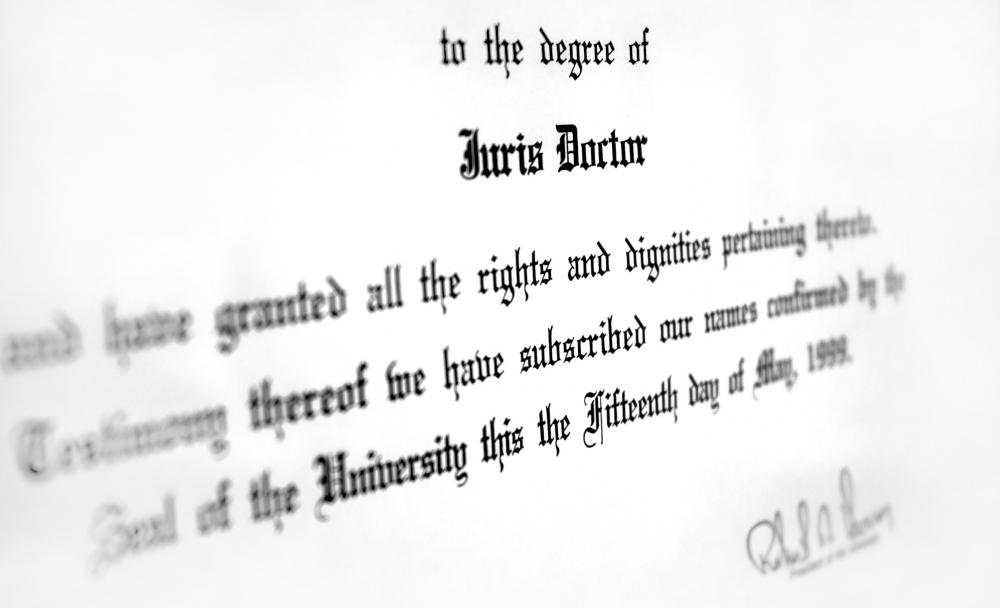At WiseGEEK, we're committed to delivering accurate, trustworthy information. Our expert-authored content is rigorously fact-checked and sourced from credible authorities. Discover how we uphold the highest standards in providing you with reliable knowledge.
How do I Become a Dispute Resolution Lawyer?
Dispute resolution is a popular, and usually less costly, alternative to a courtroom trial, and the field of dispute resolution law is growing. One way to get involved is to become a dispute resolution lawyer. The first thing one must do to become a dispute resolution lawyer is to be accepted to, and ultimately graduate from, a law school or legal degree program. Most of the time, dispute resolution experience is gleaned from both coursework and hands-on experience while in law school. From there, all one must usually do to become a dispute resolution lawyer is to pass the bar and get to work.
Legal careers in most countries are largely self-made, which is to say that specializations can be added and changed without additional schooling. With few exceptions, law degrees in the United States, Canada, the United Kingdom, and the European Union are granted as general Juris Doctor degrees. Students can choose to focus their studies on certain areas of law once they pass their jurisdiction’s bar or admittance exam, but specialties and focus areas are not usually listed on diplomas or degrees.

As such, anyone with a law degree and a bar pass can potentially become a dispute resolution lawyer or mediation lawyer. It is usually easier to find work in dispute resolution with some dispute resolution experience, however. Lawyers who have some familiarity with settlements and conflict mediation often find that dispute resolution is more rewarding as a career path, as well. Much of this experience can come during school. Most schools offer classes on alternatives to trial and mediation strategies, and many dispute resolution competitions and mock negotiations exist at the law student level. A law student who knows that dispute resolution is where he or she wants to end up should take advantage of these opportunities.
The main goal of dispute resolution lawyers is to help feuding parties come to an amicable resolution of their differences without involving judges, juries, or binding orders of court. The types of problems that dispute resolution lawyers handle range from property disputes and divorce situations to personal injury and medical malpractice, and the dispute resolution strategies for each are different. Dispute resolution is almost always civil in nature — criminal cases usually must go before the court.
Dispute resolution is different from traditional settlement. Most lawyers who are bringing cases to trial will attempt to settle outside of court, but this usually happens only after at least some parts of trial have been initiated. Dispute resolution lawyers are never involved in any aspects of a trial.
Training usually focuses on one type or area of dispute resolution, and most dispute resolution firms handle only a limited spectrum of disputes. In this way, the lawyers can hone their negotiating and mediating skills to a specific genre of cases, and can build themselves up to be experts in a certain field of disputes. Choosing a dispute resolution lawyer is usually a matter of finding a lawyer with experience in the type of dispute at issue.
Successful dispute resolution ends in a division of rights and responsibilities. Parties must make legally binding statements at the close of the resolution setting out what the parties agreed to, including in most instances a promise not to enter into a lawsuit for the issues resolved. Often times, this statement is filed with a court. If you become a dispute resolution lawyer, you will be able to lead people through mediation of their problems, and help resolve problems without the stress and cost of courtroom litigation.
AS FEATURED ON:
AS FEATURED ON:











Discuss this Article
Post your comments